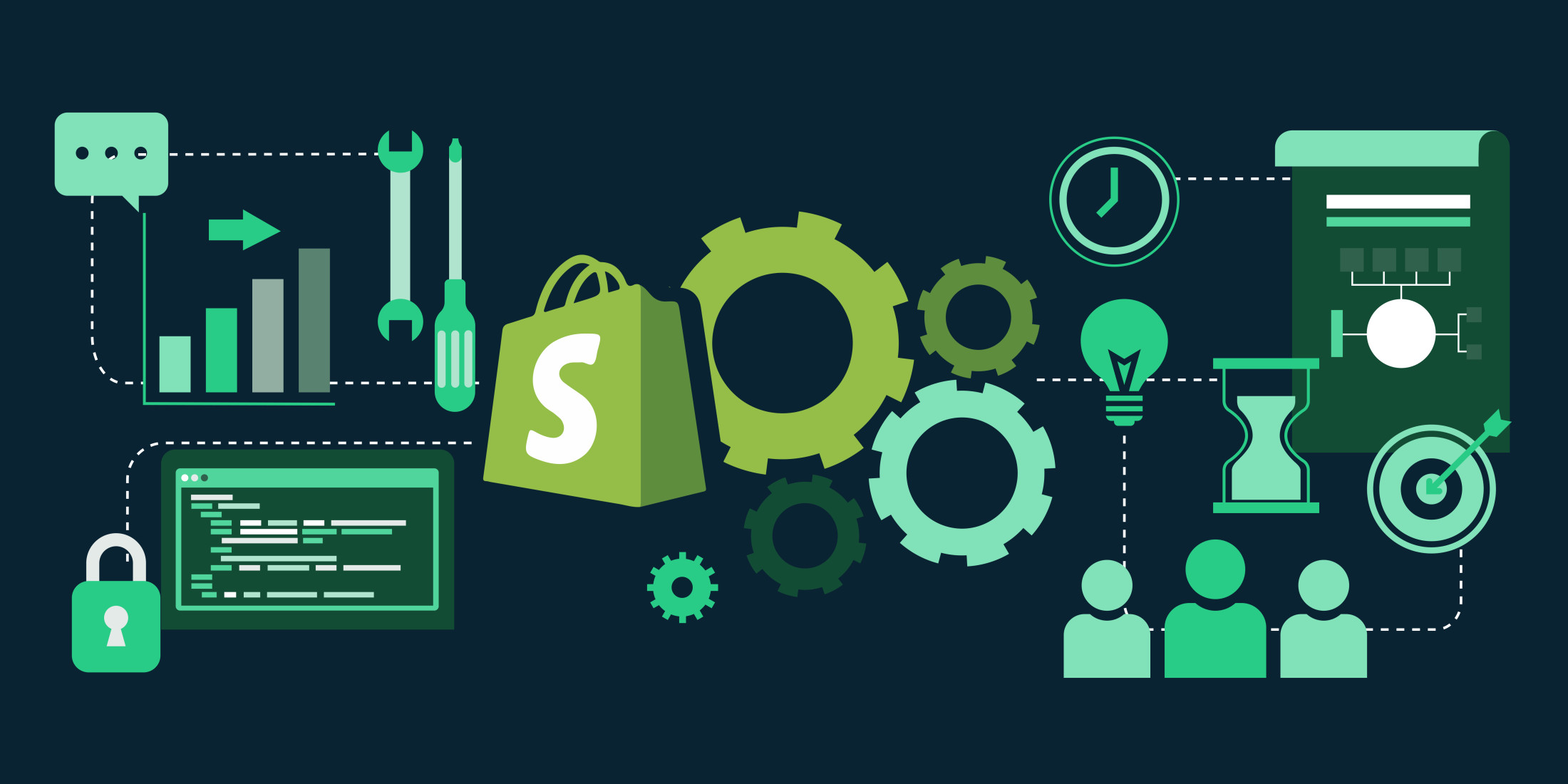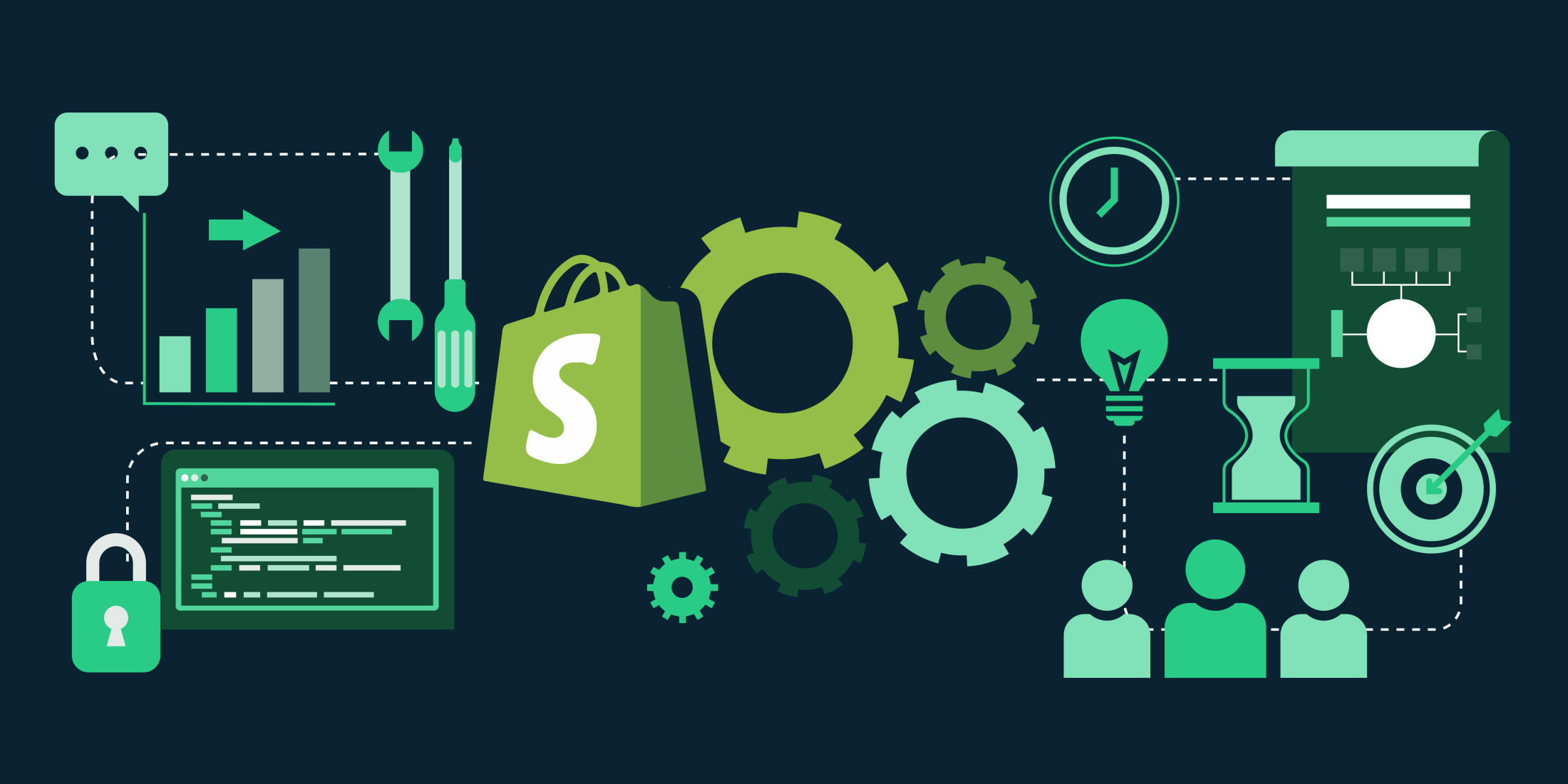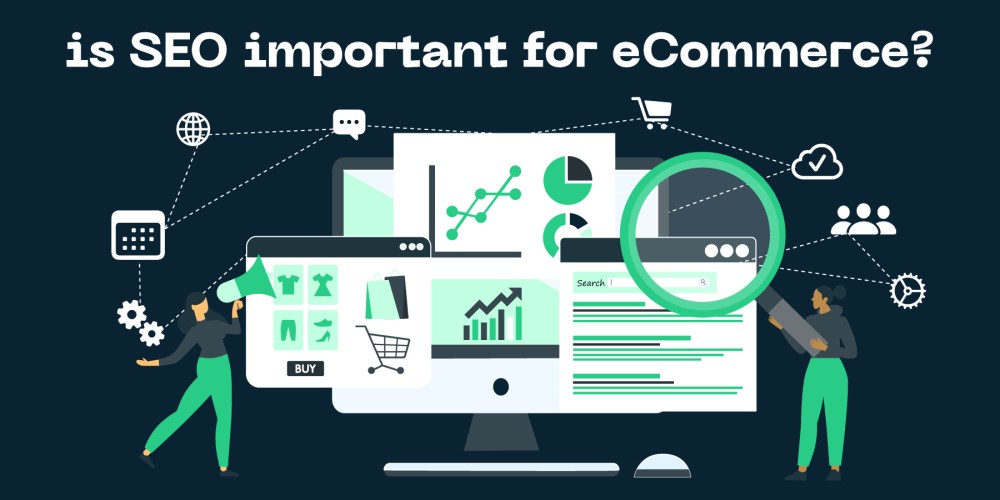How AI Can Help Identify and Fix SEO Issues Quickly

Key Takeaways
- AI is a powerful tool for identifying and fixing SEO issues quickly, making it easier to boost your website's performance.
- With AI, you can automate the identification of SEO problems, allowing for faster and more accurate solutions.
- AI tools can help you detect common SEO errors and offer solutions for quick enhancements.
- Integrating AI into your existing systems can be seamless and compatible with many platforms.
- AI-powered SEO audits and analysis can lead to continuous optimization and better site performance.
- ConvertMate offers solutions to optimize your eCommerce site's SEO using AI, helping you stay ahead in the competitive digital market.
Understanding AI in SEO
What AI Does for SEO
AI is revolutionizing the way we approach SEO by automating complex processes and providing deep insights that were previously difficult to uncover. For eCommerce store owners and marketers, this means AI can rapidly analyze massive amounts of data to identify patterns and trends that could impact search rankings. AI algorithms can process information from search engines, user behavior, and content performance to pinpoint specific areas where a website may be underperforming. This capability is crucial as it allows businesses to make informed decisions quickly, optimizing their content and website architecture for better visibility and conversion rates.
One of the key benefits of using AI in SEO is its ability to detect and diagnose technical SEO issues that might otherwise go unnoticed. AI tools can scan a website to identify broken links, slow loading pages, or poor mobile optimization, which are all factors that can negatively affect search engine rankings. By addressing these issues promptly, eCommerce store owners can ensure that their websites are not only user-friendly but also meet the technical requirements set by search engines. Furthermore, AI can help optimize content by analyzing keyword usage and suggesting improvements, ensuring that each page is aligned with the latest search engine algorithms.
Moreover, AI’s predictive analytics capabilities allow for proactive SEO strategies. By anticipating changes in search engine algorithms or shifts in consumer behavior, AI can help businesses stay ahead of the competition. For marketers, this means being able to adjust campaigns more effectively, targeting the right audience with the right message. As a result, AI not only helps in identifying and fixing SEO issues quickly but also plays a vital role in strategic planning. In a rapidly evolving digital landscape, AI empowers eCommerce businesses to maintain a competitive edge by keeping their SEO efforts agile and responsive.
Benefits of AI for SEO
Understanding AI in SEO involves recognizing how artificial intelligence technologies can transform search engine optimization practices, particularly for those managing ecommerce platforms. AI can analyze vast datasets far more quickly and accurately than human efforts, allowing it to identify trends, patterns, and anomalies that might be missed by manual analysis. For ecommerce store owners and marketers, this means AI can be a powerful ally in optimizing their website's visibility, improving user experience, and ultimately increasing conversion rates.
One of the key benefits of AI for SEO is the ability to identify and fix SEO issues rapidly. AI algorithms can scan websites to detect broken links, identify duplicate content, and assess page load speeds in real-time. By addressing these issues quickly, ecommerce businesses can ensure that their sites remain user-friendly and search engine compliant, which helps in maintaining high search rankings. Moreover, AI tools can provide actionable insights by simulating user behavior, enabling marketers to refine their SEO strategies based on predictive analytics.
AI also enhances keyword research by analyzing competitor strategies and suggesting new keyword opportunities that might be less competitive yet highly relevant. This not only aids in better targeting potential customers but also helps in optimizing content for voice search and long-tail keywords, which are increasingly important in search engine algorithms. Furthermore, AI-driven content creation tools can assist marketers in generating high-quality, SEO-optimized content at scale, thus freeing up time and resources for other strategic initiatives. In essence, adopting AI in SEO practices empowers ecommerce businesses to stay ahead of the curve and maintain a competitive edge in the digital marketplace.
Identifying SEO Issues with AI
Common SEO Problems
Search Engine Optimization (SEO) is a critical component for the success of any ecommerce store, as it directly influences visibility in search engine results and, consequently, conversion rates. However, SEO is fraught with numerous challenges that can impede an online business's growth. One common issue is the presence of outdated or duplicate content, which can confuse search engines and dilute the effectiveness of keywords. Another frequent problem is improper keyword usage or keyword stuffing, where there is either an over-optimization or underutilization of relevant terms. Both scenarios can lead to penalties from search engines, negatively impacting the store's ranking and visibility.
Additionally, technical SEO issues such as slow page load times, broken links, and unoptimized mobile designs can seriously hamper user experience, leading to increased bounce rates. These technical glitches are often invisible to the untrained eye and may persist without adequate resources to identify and address them. For ecommerce store owners and marketers striving for higher conversion rates, these problems are not just inconvenient; they're potential revenue blockers. Correcting them requires a meticulous approach to ensure that every aspect of the website is primed for optimal performance and search engine compliance.
This is where AI comes into play, offering a powerful toolset for identifying and resolving these common SEO problems. AI-powered platforms can quickly analyze vast amounts of data, flagging issues like broken links, slow-loading pages, and even predicting the effectiveness of keyword strategies. By leveraging machine learning algorithms, AI systems can automate the routine auditing of website content and structure, ensuring that any discrepancies are swiftly corrected. This capability not only saves time but also enhances the accuracy of SEO efforts, allowing ecommerce businesses to focus on strategic improvements rather than getting bogged down by technical minutiae. Ultimately, adopting AI into your SEO strategy can be a game-changer, enabling faster identification and resolution of issues that might otherwise go unnoticed, thereby boosting your chances of achieving better visibility and higher conversion rates.
AI Tools for Detection
In today's digital marketplace, the ability to rapidly identify and address SEO issues is crucial for ecommerce store owners and marketers aiming to enhance their conversion rates. AI tools have become invaluable assets in this regard, offering precision and efficiency that traditional methods simply cannot match. By leveraging AI-powered platforms, businesses can uncover hidden SEO issues, such as broken links, keyword cannibalization, and meta tag redundancies, with remarkable speed and accuracy. This capability allows for swift action, ensuring that potential customers are not lost due to overlooked technical glitches or suboptimal content strategies.
AI tools also excel in analyzing vast amounts of data to provide actionable insights. With their ability to process complex datasets, these tools can identify patterns and trends that may not be readily apparent to human analysts. For instance, AI can pinpoint which keywords are underperforming and suggest alternatives that align better with current search engine algorithms. Additionally, AI can monitor website performance in real time, alerting marketers to emerging issues before they impact user experience or search rankings. This proactive approach not only saves time but also helps maintain a competitive edge in the ever-evolving landscape of e-commerce.
Moreover, AI tools offer the advantage of continuous learning and adaptation. As search engine algorithms evolve, so do these technologies, ensuring that the insights provided remain relevant and up-to-date. For ecommerce store owners and marketers, this means less time spent on manual audits and more time focusing on strategic initiatives that drive growth. With AI tools for detection, businesses can not only identify SEO issues swiftly but also implement effective solutions that enhance site visibility, improve user engagement, and ultimately boost conversion rates.
Fixing SEO Issues with AI
Strategies for Improvement
In the fast-paced world of ecommerce, where every click counts, maintaining a strong SEO strategy is crucial for maximizing conversion rates. With the advent of AI technology, businesses now have a powerful ally to help identify and rectify SEO issues that may be holding back their digital performance. AI tools can quickly analyze vast amounts of data to pinpoint the weak spots in your SEO strategy, from underperforming keywords to technical glitches that may affect website ranking. By leveraging AI, ecommerce store owners and marketers can stay ahead of the competition, ensuring that their websites are not only visible but also optimized to convert visitors into customers.
One of the most significant advantages of using AI for SEO improvement is its ability to process and analyze data at a scale that is simply not feasible for human analysts. For example, AI can monitor search engine algorithms and update keyword strategies in real-time, ensuring that your site remains compliant with the latest SEO practices. This dynamic approach not only saves time but also allows store owners to focus more on creative and strategic tasks while leaving the data crunching and technical adjustments to AI. Additionally, AI can provide insights into user behavior and preferences, enabling marketers to tailor content and product offerings that resonate with their audience, further enhancing conversion rates.
Moreover, AI-powered tools can automate the tracking and fixing of technical SEO issues such as broken links, slow page load times, and mobile responsiveness. These technical factors are critical as they directly impact user experience and, consequently, search engine ranking. By automating these tasks, ecommerce businesses can ensure that potential customers are not deterred by a frustrating browsing experience. In essence, by integrating AI into their SEO strategy, ecommerce store owners and marketers can not only quickly identify and resolve SEO issues but also continuously enhance their online presence, ensuring sustained growth in an increasingly competitive digital marketplace.
AI Solutions for Quick Fixes
In the fast-paced world of e-commerce, staying ahead of search engine optimization (SEO) issues is crucial for maintaining visibility and driving traffic to your online store. Leveraging artificial intelligence (AI) for SEO can be a game-changer, providing quick and efficient solutions to common problems. AI tools can help identify patterns and areas of improvement by analyzing vast amounts of data across various platforms. This not only saves time but also ensures that your store is always optimized for search engines, ultimately leading to an increase in conversion rates.
AI-powered tools can perform comprehensive audits of your website, identifying technical SEO issues such as broken links, slow page speeds, or mobile usability problems. By pinpointing these issues quickly, AI helps you prioritize fixes that can have an immediate impact on your site’s performance. Furthermore, AI can analyze competitors’ websites, providing insights into their strategies and helping you stay one step ahead. With AI’s ability to process data faster than any human could, you can focus on strategic decision-making rather than getting bogged down by technical details.
One of the most significant advantages of using AI in SEO is its predictive capabilities. AI can forecast trends by analyzing search data and user behavior, allowing you to tailor your content and marketing strategies accordingly. This proactive approach can help you capture emerging opportunities before your competitors. Additionally, AI can automate routine SEO tasks like keyword research and content optimization, freeing up valuable time for you to concentrate on other aspects of your business. By integrating AI solutions into your SEO strategy, you not only enhance your site’s performance but also position your e-commerce store for sustainable growth in an increasingly competitive marketplace.
Integrating AI with Existing Systems
Compatible Platforms
Integrating artificial intelligence with your existing systems can revolutionize how you identify and fix SEO issues, particularly if you’re running an ecommerce store. The success of AI in this area largely hinges on the compatibility of the platform you choose. Many ecommerce platforms, like Shopify, WooCommerce, or Magento, already support various AI tools, making it easier to implement and monitor your SEO strategy. These platforms allow seamless integration of AI algorithms that can analyze vast amounts of data more efficiently than traditional methods. This efficiency not only provides faster insights but also allows for real-time updates and adjustments to your SEO strategy, thereby improving your store’s visibility and, ultimately, its conversion rates.
One of the primary benefits of utilizing AI in SEO is its ability to learn and adapt over time. However, the effectiveness of these AI tools is contingent upon their compatibility with your existing systems. A platform that supports robust API integrations can facilitate the smooth operation of AI tools, enabling them to access and process data efficiently. This compatibility ensures that the AI tools can provide actionable insights, such as identifying broken links, optimizing keywords, or analyzing competitors' strategies. As an ecommerce store owner, ensuring that your platform supports these integrations can greatly enhance the speed and accuracy with which you address SEO issues.
Moreover, the compatibility of AI tools with your existing systems can directly influence your team’s ability to leverage these technologies. A seamless integration means that your team can focus on strategic decision-making rather than spending valuable time on technical troubleshooting. This not only reduces operational friction but also empowers your team to make data-driven decisions that can augment your marketing efforts. In a competitive ecommerce landscape, the ability to quickly adapt and optimize your SEO strategy using AI can be a game-changer, potentially leading to increased traffic, higher conversion rates, and a stronger market presence.
Seamless Integration Tips
Integrating AI with existing systems is a pivotal step for ecommerce store owners and marketers who aim to leverage advanced technologies to enhance their SEO strategies. AI offers unparalleled capabilities in identifying SEO issues, analyzing patterns, and providing actionable insights faster than traditional methods. However, to fully harness its potential, businesses need to ensure that AI is seamlessly integrated into their current operational frameworks. This means focusing on compatibility, data synchronization, and user training to avoid any disruptions in workflow and to maximize the AI’s effectiveness.
A critical tip for seamless integration is to start by assessing your current systems and identifying the areas where AI can have the most impact. For example, if your ecommerce platform already has robust analytics, your focus should be on how AI can complement these insights with predictive analytics and automated recommendations for SEO improvements. Ensuring that the AI tools you choose are compatible with your existing software will prevent data silos and facilitate a more cohesive strategy. It’s essential to prioritize tools that offer open APIs or are designed to work with popular platforms, making integration smoother and more efficient.
Moreover, when integrating AI, consider the user experience in your organization. Training your team to work alongside AI tools is crucial. This involves not only technical training on how to use the AI application but also understanding the AI’s role in the broader SEO strategy. Encourage a culture where AI is seen as an ally, augmenting human capabilities rather than replacing them. By fostering an environment of collaboration between humans and AI, ecommerce businesses can more quickly identify and rectify SEO issues, ultimately leading to increased conversion rates and a stronger online presence.
Measuring Success Post-Implementation
Key Metrics to Track
Tracking key metrics post-implementation is crucial for determining the success of AI-driven SEO strategies. One of the primary metrics to monitor is organic traffic. Using AI to streamline SEO efforts can lead to noticeable improvements in organic traffic, as the technology can identify and fix underlying SEO issues that might have been overlooked. By keeping a close eye on organic traffic statistics, ecommerce store owners and marketers can assess whether the implemented AI strategies are effectively drawing more visitors to their site. A steady increase in organic traffic suggests that the site is becoming more visible to search engines, which is a positive sign that the AI interventions are working as intended.
Another critical metric to consider is the conversion rate. While driving traffic to a website is important, the ultimate goal is to convert these visitors into customers. AI tools can help identify bottlenecks in the conversion funnel by analyzing user behavior and suggesting improvements. Monitoring conversion rates post-implementation will provide valuable insights into whether the AI-driven SEO improvements are not only attracting more visitors but also translating into actual sales. A significant uptick in conversion rates would indicate that the AI is effectively optimizing the site for both search engines and user experience, fostering an environment where visitors are more likely to make purchases.
Additionally, tracking the bounce rate is essential for measuring the success of AI implementations. A high bounce rate might indicate that visitors are not finding the content relevant or engaging, which could be an area where AI can offer significant improvements. By intelligently analyzing user engagement patterns, AI can suggest content adjustments and SEO refinements that can reduce bounce rates. Analyzing how these rates change over time post-implementation can reveal the impact of AI on user retention and engagement, helping marketers refine their strategies for continual improvement.
Continuous Optimization with AI
Measuring success post-implementation of AI-driven continuous optimization in SEO can be a game-changer for ecommerce store owners and marketers. By leveraging AI’s sophisticated analytical capabilities, businesses can not only identify and fix SEO issues quickly but also track the effectiveness of these fixes over time. This is crucial because SEO is not a one-time effort but an ongoing process that requires constant monitoring and adjustment. AI tools can provide real-time insights into how changes impact rankings, organic traffic, and ultimately, conversion rates. This data can then inform further optimization efforts, allowing businesses to maintain or even improve their competitive edge in the digital marketplace.
It is also essential to consider what metrics should be used to measure success after implementing AI-driven SEO solutions. While traditional metrics like search rankings and organic traffic remain important, ecommerce businesses should also focus on conversion-related metrics. AI can help in identifying which SEO changes lead to an increase in conversion rates, a critical factor for any ecommerce platform. By analyzing user behavior and engagement metrics, AI can pinpoint what aspects of the user experience are most affected by SEO changes. This information can help marketers fine-tune their strategies to drive more meaningful interactions and ultimately, sales.
An additional benefit of using AI for continuous optimization is its ability to adapt and learn from new data. As algorithms become more sophisticated, they can provide deeper insights and more accurate predictions about future trends and customer behaviors. This adaptability ensures that SEO strategies remain relevant even as search engine algorithms evolve, safeguarding the investment in optimization efforts. For ecommerce store owners looking to increase their conversion rates, the blend of AI technology and continuous optimization presents a powerful toolset that, when measured accurately, can lead to sustained business growth.
FAQS
How does AI help in identifying SEO issues on my eCommerce site?
AI can analyze vast amounts of data quickly to identify patterns and anomalies that may indicate SEO issues, such as broken links, duplicate content, or missing meta tags. It can provide insights and recommendations to optimize your site for better search engine rankings.
Can AI tools help in optimizing keywords for better SEO performance?
Yes, AI tools can analyze search trends and competitor data to suggest keywords that are more likely to drive traffic. They can refine keyword strategies by identifying long-tail keywords and semantic keywords that align with your business goals.
How quickly can AI identify SEO issues on my website?
AI-powered tools can scan your entire website in a matter of minutes to hours, depending on the size of the site. They provide a comprehensive report on SEO issues, allowing you to address them quickly and improve your site's performance.
What role does ConvertMate play in fixing SEO issues?
ConvertMate integrates AI technology with your existing analytics and CMS platforms to offer tailored recommendations for SEO improvements. It automates the process of detecting issues and provides actionable insights to enhance your site's SEO performance.
Can AI tools help with technical SEO issues?
Absolutely, AI tools can identify technical SEO issues like site speed, mobile responsiveness, and crawl errors. They offer solutions to address these technical challenges, ensuring your site is optimized for search engines and user experience.
Are AI solutions effective for local SEO improvements?
Yes, AI can help identify region-specific keywords and optimize your content for local searches. It can also analyze local competition and provide insights into how you can improve your site’s visibility in local search results.
How does AI ensure continuous SEO improvement?
AI continuously monitors your website's performance and the latest SEO trends to provide ongoing optimization suggestions. This ensures that your eCommerce site adapts quickly to changes in search engine algorithms and maintains its competitive edge.



